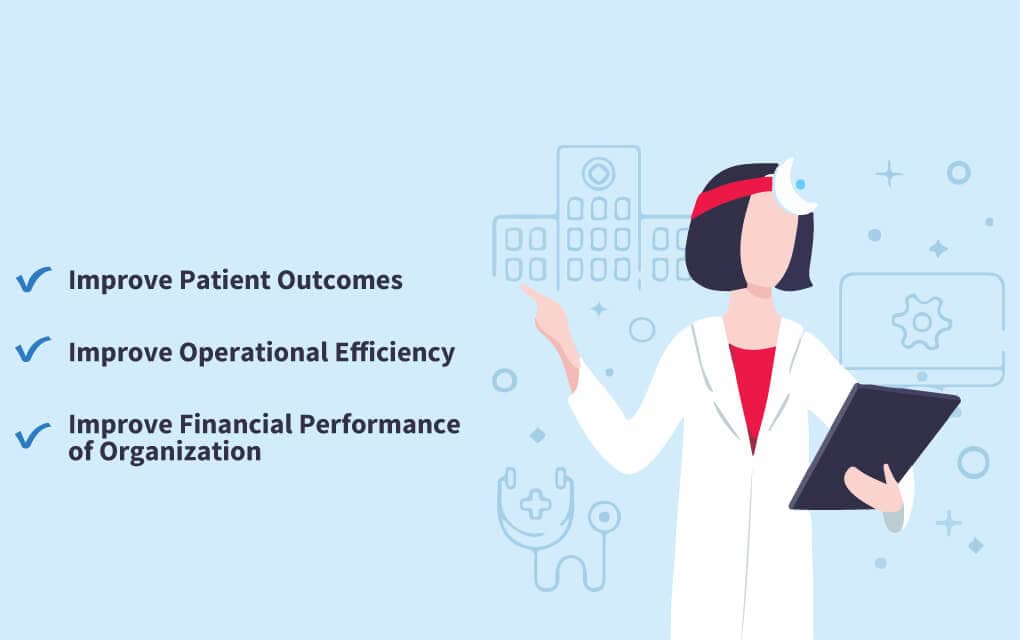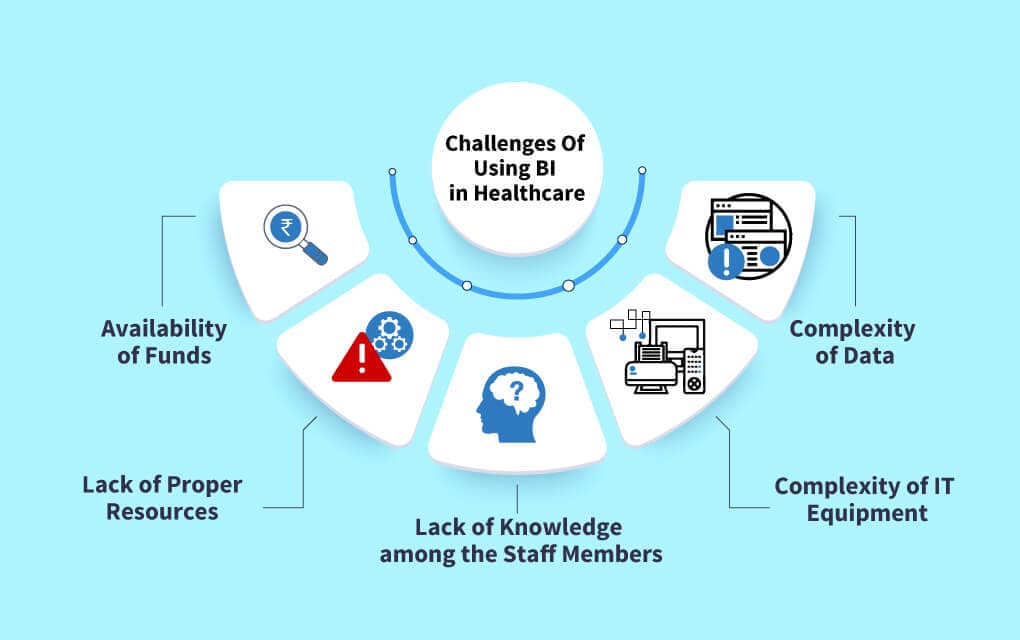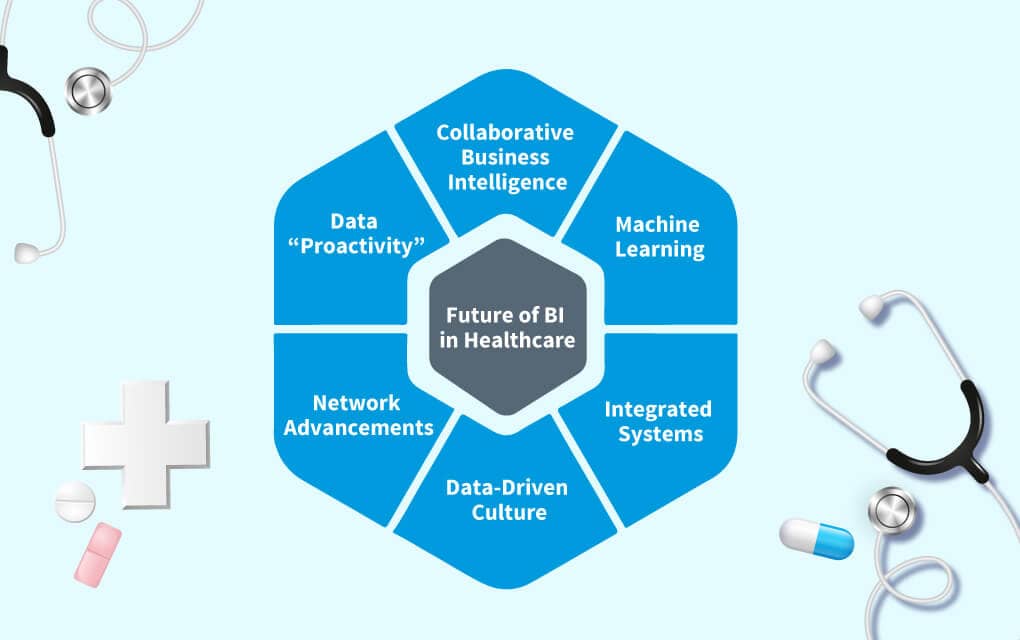Vipul Sharma, 26th Sep
According to research by Market Research Future (MRFR), The Healthcare Business Intelligence Market size is projected to reach Significant Value by 2030 at a healthy CAGR of 16.10%.
Many developments have taken place in the field of business intelligence, which has made it an essential tool for healthcare organizations. The following are some of the most important trends that are likely to shape the future of business intelligence in healthcare:
Table of Contents
Future of Business Intelligence in Healthcare
Business Intelligence (BI) is a term that is often used in the business world, but what does it really mean? BI is a process that uses data and analytics to help organizations make better decisions. In healthcare, BI can be used to improve patient outcomes, lower costs, and increase operational efficiency.
There are many different types of data that can be used in healthcare BI, such as claims data, laboratory data, and patient records. This data can be used to give insights into trends and patterns in healthcare. For example, BI can be used to identify areas where care is not meeting standards or where there are financial opportunities.
The healthcare industry is under constant pressure to improve patient outcomes while reducing costs. To meet these goals, healthcare organizations have turned to business intelligence (BI) solutions. BI tools collect and analyze data to help healthcare professionals make better-informed decisions about patient care.
BI solutions have been shown to improve patient outcomes and reduce costs in a variety of ways. BI-based clinical decision support systems have been shown to reduce the length of stay, readmission rates, and mortality rates. In addition, BI solutions can help with resource allocation, fraud detection, and population health management.
The healthcare industry is complex, and business intelligence is just one piece of the puzzle. BI solutions can play a major role in helping healthcare organizations meet their goals.
Benefits of Business Intelligence in Healthcare

There are many potential benefits of using BI in healthcare.
- BI can help improve patient outcomes by identifying trends and patterns in data that can be used to develop new treatments and interventions.
- BI can also help to improve operational efficiency by identifying wasteful processes and helping to optimize resources.
- BI can help to improve the financial performance of a healthcare organization by identifying cost-saving opportunities and opportunities for revenue growth.
Challenges In BI Healthcare

BI is not easy to implement a technology that is not well-versed with people who will be using it, so comes the challenges of using Business Intelligence in Healthcare Industries:
- Complexity of Data
Healthcare data is often spread out across different silos, making it difficult to get a comprehensive view of the patient journey. The complex nature of Healthcare data makes it hard to glean actionable insights from it. - Availability of Funds
The most common challenge faced in today’s era is that shifting towards an altogether new technology requires lots of initial funding. - Lack of proper resources
Taking this technology to the next step needs complex systems like server, fast computing devices, etc. but the availability of these items are of much concern. - The complexity of IT Equipment
To fetch the data from all of the varied Healthcare equipment such as X-Ray machines, MRI machines, radiology machines, etc. can be a hectic task and need specialization and impose a big hurdle for the use of BI in Healthcare Industries. - Lack of knowledge among the staff members
This is one of the first and foremost hindrance one may come across while pitching BI in healthcare industries, as the actual user should have had enough knowledge about the usage of the technology and he/she should be able to pass on the information to the decision makers to make effective decisions.
How Business Intelligence can help to shape the future of Healthcare?
Data is becoming increasingly important in the healthcare industry. With the vast amount of data that is being collected, it is becoming difficult for healthcare organizations to make sense of it all. This is where business intelligence comes in. Business intelligence tools can help to make sense of all the data and allow healthcare organizations to make better decisions.
Future of Business intelligence can help to shape the future of healthcare, by using data to identify trends and patterns, healthcare organizations can make better decisions about where to allocate resources and how to best care for patients. Business intelligence can also help to identify areas of improvement and potential areas of growth.
Future of Business Intelligence in Healthcare

Collaborative Business Intelligence
One of the key future of business intelligence in future trends is the growth of the digital business intelligence world into a space where tools and platforms will become more broad-spectrum and eventually, more collaborative.
Today’s tools are siloed and independently operated by users — unconnected to a broader network. However, there is a consensus that the next generation of business intelligence will be geared toward larger sets of users and more connected to greater systems.
Integrated Systems
future of Business intelligence software is expected to become more embedded in well-established workflows. Most service providers are working on application programming interfaces (API) allowing for data analysis within users’ existing systems. Integration abilities are expected to expand by offering third-party functionality from within a business intelligence tool while also implementing BI capabilities in other applications.
Machine Learning
BI software is expected to become intuitive and add predictive capabilities to identify insight based on the context of the proposition with machine learning and AI..
The Tools are expected to analyze past data and provide insights and forecasting. These predictive functions will streamline decision-making, accounting for compliance in the process.
Data “Proactivity”
Eventually, you get to a place where business intelligence work doesn’t have to be jump-started by human users anymore. Instead, you’re more likely to passively receive this intelligence than you are to go looking for it in a report or even on a dashboard. This is data proactivity: information brought to you. This may be as simple as important data points being more prominent in visualization or as advanced as notifications providing direct answers.
To put it simply, all of these features offer the benefit of providing answers based on your business’ stored data. Whether you directly engage the system or not, an intuitive tool will bring the answers to you.
Network Advancements
As software technologies are doing more with BI data, new networking structures are emerging to handle these massive troves of data along with their flow into and out of business systems.
Cloud will take over large swathes of the business world, where third-party companies will be able to offer services to individual clients to help them manage business intelligence and analytical data.
Data-Driven Culture
BI software will become more user-friendly as the industry grows. This growth will also drive a more knowledgeable user base. But along with these improvements, business leaders need to take on the responsibility of educating their workforce.
The business intelligence industry has expanded exponentially in recent years and is expected to continue growing. If you want to make the most of data analysis in an established or newly adopted BI system, your team should be data-driven. Businesses should focus on why and how they are using data.
Conclusion
In conclusion, it is evident that Business Intelligence is playing a significant role in the healthcare industry and will continue to do so in the future. With the ever-growing amount of data, it is becoming increasingly difficult for healthcare organizations to make sense of it all. Business intelligence tools can help make sense of this data and guide decision-making. Prefigure Technologies is at the forefront of this industry, contact us for business intelligence consulting.

